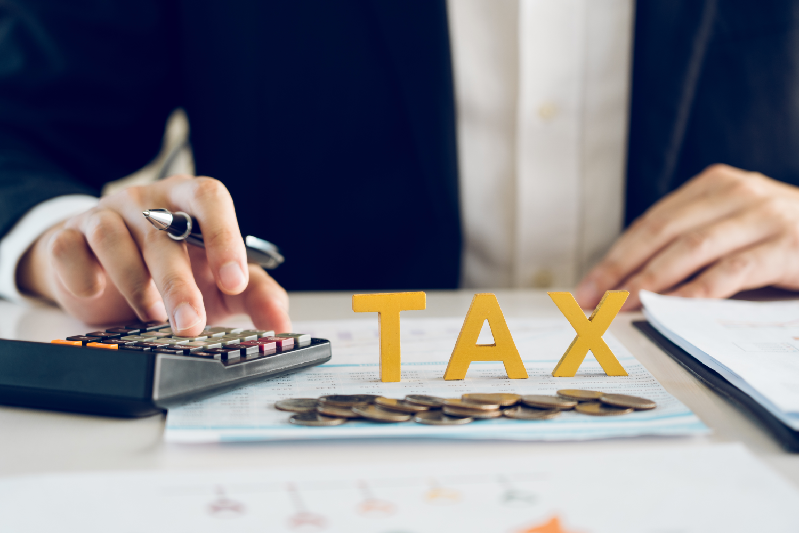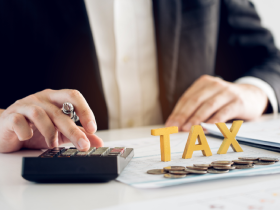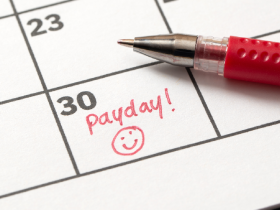If you’re the owner of a limited company based in the UK, chances are you’re going to have to pay Corporation Tax, and so it’s something you should really know about. It affects other kinds of businesses and organisations, too. For example, foreign companies with UK branches or offices.
In this breakdown, we’ll cover all the important points to understand, so that you come away feeling more confident that you know what to expect. Let’s dive in.
What is Corporation Tax?
Quite simply, Corporation Tax is a kind of tax paid by some UK businesses and organisations on the profits they make. In this context profit is defined as the amount of income remaining after the business has paid all of its expenses. So, whatever’s left over.
Who needs to pay Corporation Tax?
As a general rule, it’s paid by all limited companies incorporated in the UK. This doesn’t tell the full story, though, as there are other organisations that might need to pay it (even if they’re not set up as limited companies). These other organisations include, but are not limited to:
- Members’ clubs, societies, and associations
- Trade associations
- Housing associations
- Groups of individuals who run businesses (e.g. as co-operatives)
- Foreign companies with UK branches or offices (also known as ‘overseas’ companies)
Sole traders and partnerships don’t pay Corporation Tax, but instead pay Income Tax on their profits, which they tell HMRC about via Self Assessment or MTD Income Tax returns (as opposed to company ones).
How does Corporation Tax work?
You’ll need to submit a Company Tax Return in order to pay Corporation Tax if you operate as a limited company, with HMRC using the information you provide to work out how much tax you owe.
Basically, it’s paid on the taxable profits your company makes, which can include the money your company or association makes from:
- Doing business (‘trading profits’)
- Investments
- Selling assets for more than they cost (‘chargeable gains’)
How do I pay my Corporation Tax?
The first thing to know is that most companies automatically register for Corporation Tax at the outset when they incorporate the business at Companies House, but you can defer this.
It is fine to register your company at a later date, as long as you do so within 3 months of you starting to trade. Trading doesn’t just mean making sales, though. It can actually refer to any sort of business activity (placing an advert, for example).
Once registered, HMRC will send your company’s Unique Taxpayer Reference, or UTR. It’s separate to any personal UTR you might have for your own taxes, so don’t mix them up!
To file your Company Tax Return and actually pay your Corporation Tax (when the time comes), you’ll need to fill out and submit a CT600 form, which features a list of strict criteria that must be met for compliance. These include:
- Income and turnover
- Profit and loss for the financial year
- Tax reconciliation
- Tax deductions
- Any tax relief you’re claiming
In terms of making the payment itself, you can do this online or over the phone. While you can also pay in person at a local branch of your bank, you’ll need a paying-in slip from HMRC.
Is there a way to reduce my Corporation Tax bill?
There are actually several ways to reduce your Corporation Tax bill, the main one being through Marginal Relief.
You can claim Marginal Relief if your company’s annual taxable profits are between £50,000 and £250,000, and the easiest way to work out how much is available to you is by making use of HMRC’s online calculator. This basically adjusts the rate of Corporation Tax you’ll pay on your profits if they’re between those two thresholds.
You can’t, however, claim Marginal Relief for a non-UK resident company, a close investment holding company, or a company whose profits are more than £250,000.
In addition to this, here are some other things to consider if you want to reduce your bill:
- Salaries are an allowable expense
- Pension payments your company makes on behalf of directors are also deductible
- Keeping good financial records is useful for making sure you record every expense
- If you buy assets for your business (e.g. machinery), you might be able to reduce your tax bill by claiming Capital Allowances, either in the year they’re purchased, or over their lifetime in the business
Limited companies can also sometimes claim tax relief against the cost of research and development, although the rules around this can be very confusing so get specialist advice!
Do I still pay Corporation Tax if my business makes no profit?
You’ll be relieved to learn that, no, you don’t, as Corporation Tax is only paid on a company’s taxable profits.
It’s essential you still submit your Company Tax Return, though – even if you don’t have any tax to pay. This is because HMRC won’t know what you owe (or don’t) unless you tell them.
Now, if the reason your company is making no profit is that it’s dormant, then you don’t even need to submit a tax return, but again, make sure you tell Companies House and HMRC that your company is dormant. They use different definitions though, so double check before updating the status!
Companies House considers a company dormant if it’s had no ‘significant’ transactions in the past financial year. These don’t include filing fees, penalties for late filing of accounts, or money paid for shares when the company was incorporated.
On the other hand, HMRC usually considers a company dormant for Corporation Tax purposes if it’s stopped trading and doesn’t have any other income, or if it’s a new company which never started trading at all. Unincorporated associations or clubs owing less than £100 Corporation Tax, and flat management companies also qualify.
A basic rule of thumb is that your company is considered dormant as long as it isn’t actively trading or liable for Corporation Tax.
Find more help in our online accounting hub, and learn more about how to find the right accountant for your business.








